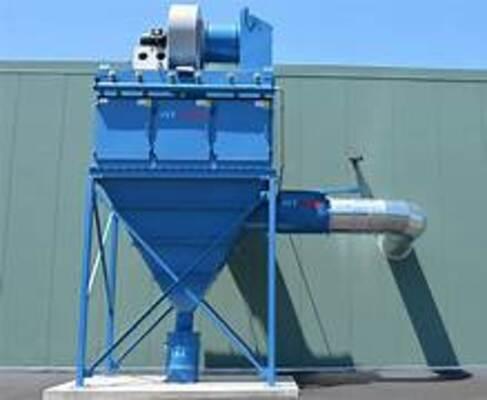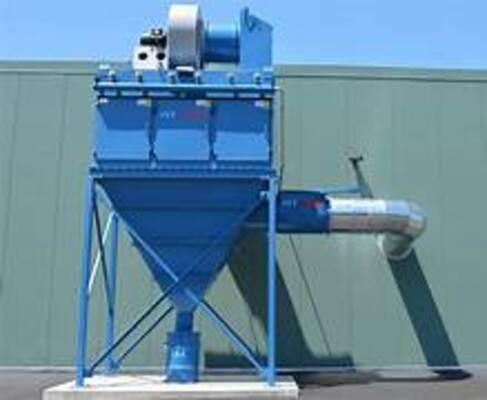Common Types of Dust Collectors and Their Applications

Subhawati ventilation Dust collectors are essential equipment in various industries to ensure clean air, improve workplace safety, and maintain environmental compliance. By capturing airborne particles, these systems prevent the accumulation of hazardous dust, which can lead to respiratory issues and equipment damage. Let’s explore the common types of dust collector in delhi and their applications in different industries.

1. Baghouse Dust Collectors
Baghouse dust collectors are widely used in industries such as cement, metalworking, and woodworking. These systems use fabric filter bags to capture fine particles from the air. When dusty air passes through the filters, the particles are trapped, and clean air is expelled. Their versatility and high efficiency make baghouse systems a go-to solution for controlling large volumes of fine dust.
2. Cartridge Dust Collectors
Cartridge dust collectors are compact and efficient, designed for applications where space is limited. They utilize pleated filter cartridges to capture contaminants. Commonly found in pharmaceutical, food processing, and chemical industries, these systems excel at handling fine and light dust. Their modular design also makes maintenance easy.
3. Cyclone Dust Collectors
Cyclone dust collectors use centrifugal force to separate dust particles from the air. Ideal for capturing heavy and coarse dust, they are often used in agricultural, mining, and metal fabrication industries. Although they don’t filter fine particles as effectively as baghouse or cartridge systems, they are cost-effective for pre-filtering applications.
4. Wet Scrubber Dust Collectors
Wet scrubbers use water or other liquids to remove dust particles and gases from industrial exhaust. These systems are especially useful in industries dealing with combustible or sticky dust, such as chemical processing and metal plating. Wet scrubbers also help control harmful gases, making them suitable for air pollution control.
5. Electrostatic Precipitators (ESPs)
Electrostatic precipitators are advanced systems that use electrical charges to attract and remove dust particles from the air. They are commonly employed in power plants, cement manufacturing, and pulp and paper industries. ESPs are highly efficient for capturing ultrafine particles and controlling air pollution.
Applications of Dust Collectors
Dust collectors play a vital role in maintaining a clean and safe work environment across various sectors. For instance, in woodworking, they ensure that sawdust does not accumulate and become a fire hazard. In the pharmaceutical industry, they protect workers from inhaling hazardous powders. In metal fabrication, dust collectors prevent harmful metal particles from damaging equipment and impacting air quality.
Each industry requires a specific type of dust collector based on the nature of the dust generated. Selecting the right system ensures efficient operation, reduces health risks, and complies with environmental regulations.
Conclusion
Choosing the appropriate dust collector for your business depends on the type of dust generated, the volume of air to be cleaned, and your industry’s requirements. By understanding the features and applications of different types, you can invest in a system that improves air quality, enhances productivity, and ensures safety in the workplace.
Subhawati wentilation is India's leading manufacturer of Dust collector in delhi . You can contact them for further information regarding the Dust collector in delhi at
- Art
- Causes
- Crafts
- Dance
- Drinks
- Film
- Fitness
- Food
- Games
- Gardening
- Health
- Home
- Literature
- Music
- Networking
- Other
- Party
- Religion
- Shopping
- Sports
- Theater
- Wellness


